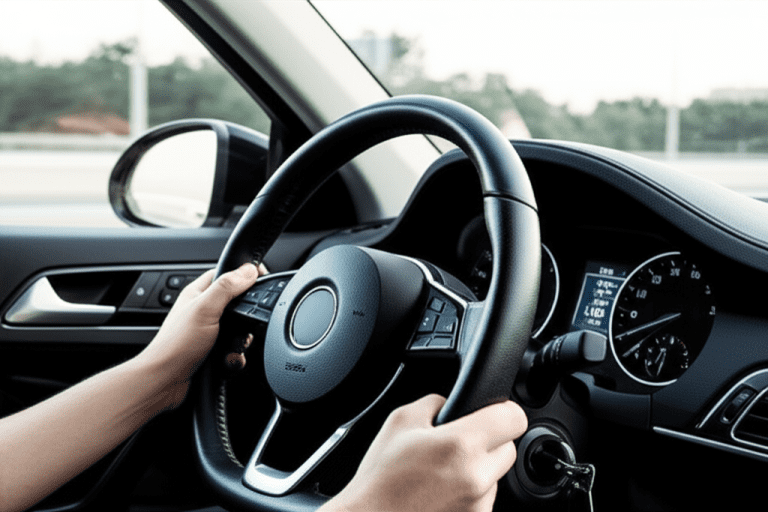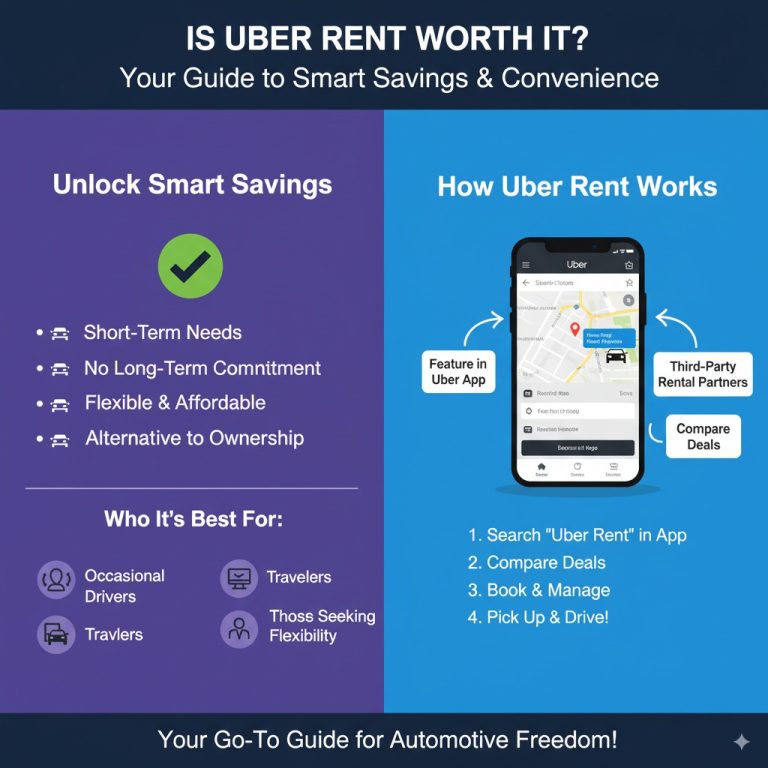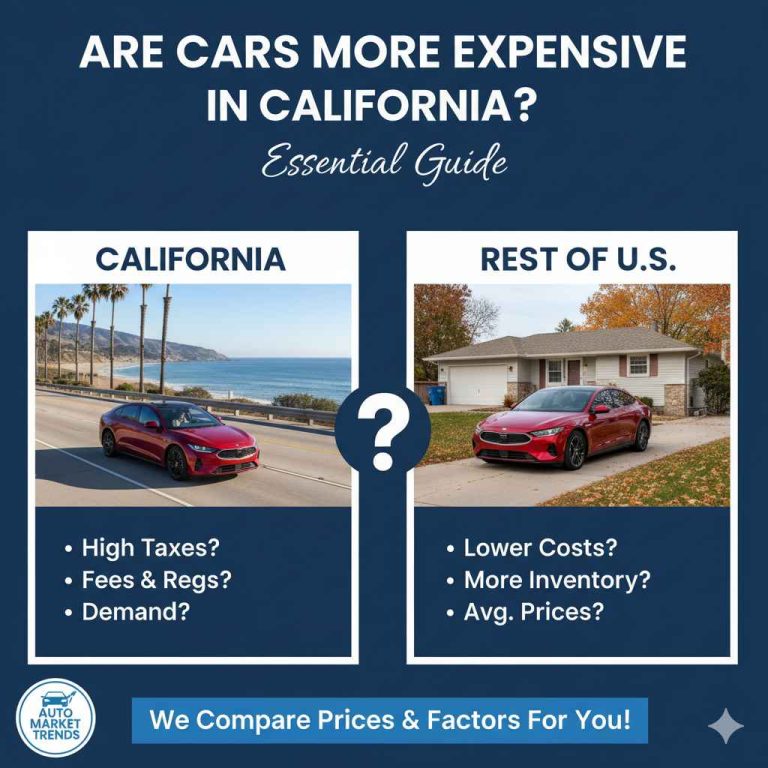Nostalgia And Its Role in Shaping Automotive Lifestyle Choices
Nostalgia plays a significant role in shaping automotive lifestyle choices, influencing consumers to look back while moving forward. It evokes powerful emotions and memories, allowing individuals to connect with the past and make choices based on sentimental value.
The automotive industry leverages nostalgia as a selling tool, appealing to consumers’ desire for familiarity and a sense of heritage. By tapping into nostalgia, automakers and dealers can create a unique and compelling narrative around their products, ultimately influencing consumer behavior and preferences.
As nostalgia marketing, conspicuous self-expression, and design preference all play crucial roles in shaping consumer choices, the automotive industry continues to harness the power of nostalgia to drive sales and create a lasting connection with customers.
The Allure Of Nostalgia In Automotive Choices
Emotional Connections: Nostalgia plays a significant role in shaping automotive lifestyle choices. It evokes emotional connections to the past, influencing preferences for classic designs and vintage aesthetics.
Historical Milestones: The historical milestones of automotive innovation hold a special place in people’s hearts. The nostalgic appeal of iconic models and the romanticism of bygone eras often guide the automotive choices of enthusiasts.
Classic Cars: Time Machines On Wheels
Nostalgia plays a vital role in shaping the automotive lifestyle choices of enthusiasts. The restoration of classic cars not only preserves automotive heritage but also fosters a community of like-minded individuals. This shared passion for classic cars forms a cultural bond, creating a sense of belonging and camaraderie among enthusiasts. Nostalgia evokes fond memories and emotions, influencing the preferences of individuals in their automotive choices. As a result, it serves as a catalyst for the appreciation of automotive history and the preservation of iconic vehicles. The automotive community thrives on the nostalgic appeal of classic cars, perpetuating a tradition that transcends generations.
Marketing Magic: Leveraging Nostalgia
Discover the magic of marketing by leveraging nostalgia to shape automotive lifestyle choices. Nostalgia plays a significant role in influencing consumer behavior and design preferences, creating a powerful selling tool for the automotive industry. Embracing nostalgia allows consumers to look back while moving forward, making it a compelling factor in shaping lifestyle choices.
| Nostalgia plays a significant role in shaping automotive lifestyle choices. Leveraging nostalgia in marketing campaigns can create a strong emotional connection with consumers and help build brand stories and heritage. Through nostalgia marketing, consumers can look back while looking forward, making it a powerful selling tool in the automotive industry. Studies show that nostalgia marketing, conspicuous self-expression, and design preference play crucial roles in shaping consumer behavior. The automobile has reshaped American life by giving people more personal freedom and access to jobs and services. It has led to the development of better roads and transportation, and new industries and jobs have emerged to supply the demand for automobile parts and fuel. Preserving automotive heritage goes beyond mere restoration; it involves cultivating a community of enthusiasts who share a common love for classic cars. |
Nostalgia’s Influence On Design And Innovation
Nostalgia has a significant impact on automotive lifestyle choices, influencing design and innovation. Retro design elements combine modern technology with vintage appeal, creating a unique blend of old and new. This fusion of past and present evokes powerful emotions, resonating with consumers and shaping their preferences.
The Personal Journey: First Cars And Fond Memories
The personal journey of owning a car has always been a rite of passage for many individuals, especially in America. It is a symbol of independence, freedom, and adulthood. The memories associated with the first car are often cherished and celebrated, forming emotional bonds that can last a lifetime. These bonds are often fueled by nostalgia, a longing for the past and a desire to relive those fond memories. The automotive industry understands the power of nostalgia and leverages it to shape lifestyle choices. By tapping into consumers’ emotional connections to cars, they are able to create a sense of longing for the past while also looking towards the future. This emotional connection is what makes the automotive industry so unique and powerful in shaping consumer behavior.
Nostalgia In The Digital Age
The rise of social media and virtual showrooms has transformed the way automotive enthusiasts connect with each other. Nostalgia has played a significant role in shaping these lifestyle choices. Through social media, car communities have become a virtual space where enthusiasts can share their love for cars and connect with like-minded individuals. In addition, virtual showrooms have revolutionized the way people shop for cars by providing an immersive experience that evokes nostalgia for classic cars. The ability to browse and compare cars from the comfort of your own home is a game changer for enthusiasts who are seeking a more personalized car shopping experience. As the automotive industry continues to evolve, nostalgia will remain a powerful tool in shaping the lifestyle choices of enthusiasts.
The Future Of Automotive Nostalgia
Nostalgia plays a significant role in shaping automotive lifestyle choices. Sustainable retro designs in electric vehicles are gaining popularity, blending modern technology with classic aesthetics. Manufacturers leverage nostalgia to create emotional connections with consumers, influencing their purchasing decisions. This trend extends to the restoration and preservation of classic cars, fostering a community of enthusiasts. Nostalgia marketing and design preferences are pivotal in shaping consumer behavior, highlighting the enduring influence of the past on present automotive choices.
Collecting And Investing: Nostalgia As Value
|
The classic car market has seen a surge in recent years, with many collectors and investors turning to nostalgia as a value. Classic cars have become more than just a hobby, they are now seen as a lucrative investment opportunity. These cars have an emotional ROI, as they not only provide a sense of nostalgia and connection to the past, but also have the potential to increase in value over time. Investing in classic cars requires a deep understanding of the automotive industry and the market trends. Classic cars have a unique appeal and are often sought after by collectors. They hold a special place in automotive history and are considered to be valuable assets. The emotional connection that people have with classic cars is what makes them a desirable investment. |
|
Nostalgia plays a significant role in shaping lifestyle choices when it comes to classic cars. Many people are drawn to classic cars because of their connection to a specific time period or memory. The automotive industry has leveraged nostalgia as a powerful selling tool, allowing consumers to look back while looking forward. Classic cars have become more than just a mode of transportation, they are a symbol of a bygone era. They represent a time of innovation, freedom, and style. Investing in classic cars is not just about making money, it is about preserving automotive heritage and cultivating a community of enthusiasts who share a common love for these iconic vehicles. |
Frequently Asked Questions
How Did Automobiles Reshape American Life?
Automobiles reshaped American life by granting personal freedom and access to jobs and services. They also prompted the development of better roads, new industries, and jobs to meet demand for automobile parts and fuel. Additionally, they facilitated relaxed sexual attitudes and introduced Americans to traffic jams and accidents.
What Influences The Automotive Industry?
The automotive industry is influenced by government regulations that dictate how cars are designed, manufactured, and equipped with safety features. These regulations shape the industry and impact the way automobiles are produced and sold. Additionally, nostalgia plays a role in shaping consumer behavior and preferences in the automotive industry.
Leveraging nostalgia can be a powerful selling tool, allowing consumers to look back while looking forward.
How Did The Rise Of Automobiles Change The Lifestyle Of People In The 20’s?
The rise of automobiles in the 20’s changed people’s lifestyle significantly. It provided more personal freedom and access to jobs and services. The development of better roads and transportation was a result of the automobile. Industries and new jobs were created to meet the demand for automobile parts and fuel.
Additionally, it facilitated relaxed sexual attitudes among dating couples and introduced Americans to traffic jams, accidents, and fatalities for the first time.
Conclusion
Nostalgia plays a significant role in shaping automotive lifestyle choices. It allows consumers to look back while looking forward, leveraging the power of emotion and memory. By tapping into the nostalgia of classic cars or iconic automotive designs, marketers can create a strong connection with consumers.
Nostalgia marketing, along with conspicuous self-expression and design preference, influences consumer behavior in the automotive industry. Ultimately, nostalgia serves as a powerful selling tool, helping to shape the choices consumers make when it comes to their automotive preferences.






